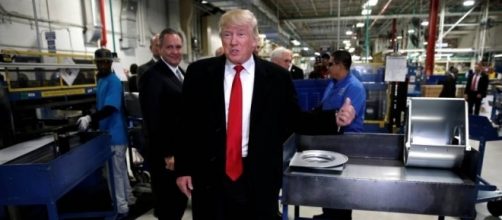President Donald Trump took credit for Ford’s billion-dollar investment in three Michigan facilities earlier this week. The decision validates one of his tenacious efforts at the time of the campaign – that he would create more jobs for Americans by stopping companies from building factories in other countries. However, reinstating manufacturing employment in the U.S. is harder than it seems, and the process of doing so is more complicated if looked further into.
It is worth mentioning that Ford had long decided to invest in American workers long before Trump won the presidential seat – the multinational automaker’s $850 million assembly plant investment was approved in 2015.
It is also a fact that cars are almost never assembled in one place. Most automakers siphon parts from different factories around the world, including Ford’s. In fact, its small car production, such as the compact Focus model, will still move to Mexico, just into an existing Ford plant in Hermosillo.
Companies moving to Mexico
Taking the spotlight away from Ford, other companies seem oblivious of President Trump’s warning on high tariffs and still have their eyes set for Mexico.
As per Bloomberg, here are some notable companies reportedly moving out of the U.S.:
- Caterpillar Inc. – from Joliet, Illinois to Monterrey, Mexico
- Illinois Tool Works Inc. – from Illinois to Ciudad Juarez, Mexico
- Rexnord Corp. – from Indianapolis to Monterrey Mexico
- TE Connectivity Ltd. – from Pennsauken, New Jersey to Hermosillo, Mexico
- Triumph Group Inc. – from Spokane, Washington to Baja California and Zacatecas in Mexico
American companies launch renewed exodus
Alan Russell, CEO of Texas-based Tecma group, said that Trump’s tariff threats wouldn't be able to eradicate the need to manufacture in countries that offer a lower cost.
“This isn’t about taking jobs from the U.S. – it’s about saving companies,” Russell said.
Last month, Trump told a joint session of Congress that he would make it “much, much harder for companies to leave our country.” Businesses across America are well aware of Trump’s refrain; in fact, most of them are willing to renegotiate tariff policies.
Whatever happens, however, Russell said businesses would continue to grow, adding that the pressure to cut costs is that relentless. “It’s a competitive world,” he said. “When you dissect the worst-case scenarios, it still makes sense to go forward with their business plans.”

